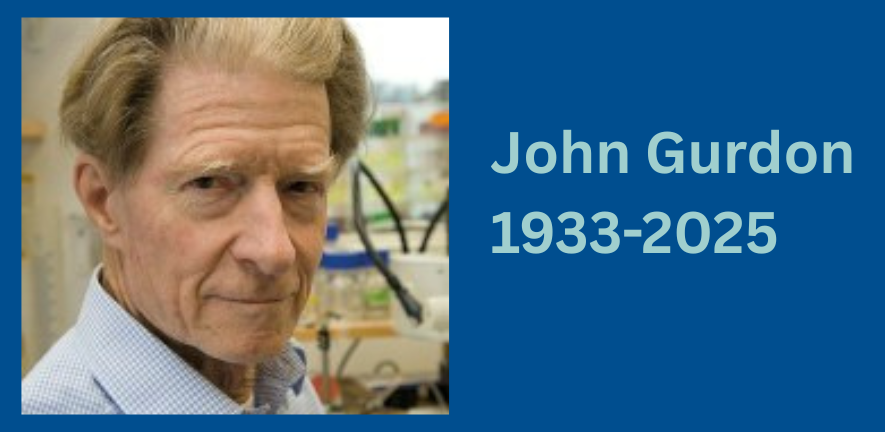
Submitted by Abigail Youngman on Wed, 08/10/2025 - 10:34
We are deeply saddened to share the news of Professor Sir John Gurdon's death. He was a pioneering scientist in developmental and stem-cell biology and a Nobel laureate, as well as an inspirational colleague, teacher and leader.
John Gurdon’s long and distinguished association with the University began in 1983 when he took up the John Humphry Plummer Professorship of Cell Biology in the Zoology Department. Here, with Ron Laskey, he initiated the Cancer Research Campaign Unit of Molecular Embryology. By 1990, it had expanded beyond the Department to become the Wellcome CRC Institute of Cancer and Developmental Biology (what is now known as the Gurdon Institute).
Throughout his career, John contributed a unique range of ground breaking discoveries in the fields of cell and developmental biology. Using Xenopus eggs and embryos, he pioneered the concept that specialised cells are genetically equivalent and that they differ only in the genes that they express but not the genes that they contain. This concept is fundamental to modern biology, and John was its leading protagonist. A by-product of this work was the method of cloning animals, which John first achieved in 1962.
Professor Jon Simons, Head of the School of Biological Sciences at the University of Cambridge, said: "Sir John Gurdon was, and will continue to be, one of the most inspirational scientists in our community, and in the world."
Further tributes to John Gurdon:
